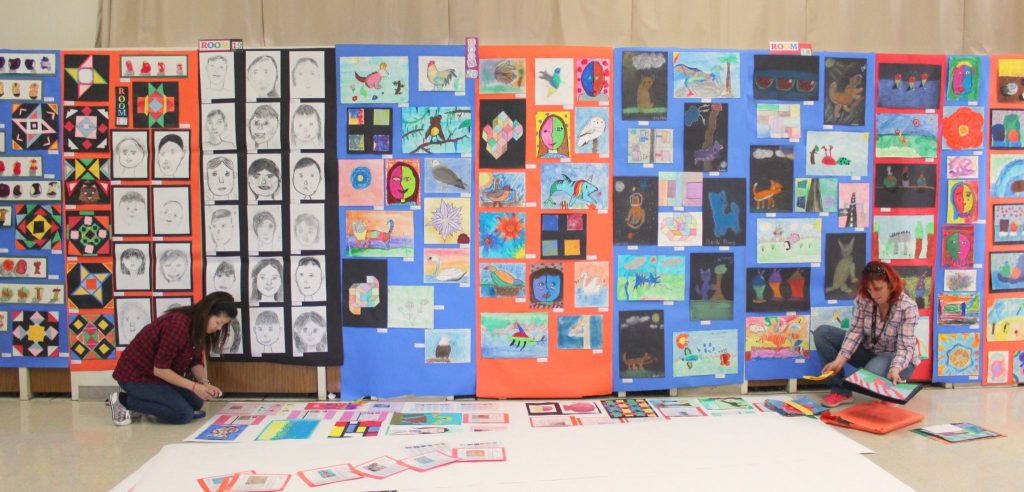“It’s a unicorn shark with a mermaid tale,” said Drake Teixeira, 10, of his artwork. “The assignment was to mix a ton of animals and creatures together. I wanted to make this for my mom and dad. I made the shark part for my dad and the unicorn part for my mom. The assignment was based on Salvador Dali’s artistic style. I used pastel and watercolor and I used charcoal to make the black outline for the picture.”
Teixeira is a fifth-grade student at Sutter Elementary School where he’s learning about artists and their artistic styles through the Art in Action Program (www.artinaction.org), an arts education curriculum the school’s PTA purchased from Art in Action, a non-profit organization. Teixeria’s hybrid creature was one of hundreds of pieces of art displayed at the school’s second annual Art in Action exhibit held in the Multipurpose Room. Each of the school’s 470 students contributed at least one piece of art to the show.
“Creativity takes courage,” said Michael Fong, Principal of Sutter, quoting Henri Matisse. “That’s what the children at Sutter did tonight. All their projects showed creativity, intelligence, courage and confidence to share their art. Art is so important here at Sutter and in public education. It is one of the most important activities in school. It develops motor skills, language development, decision making, visual learning, cultural awareness, expressiveness and, lastly, improves student attendance.”
Earlier in the day, parent volunteers were busy setting up the exhibit. One of these parents was Young Pintaske, who also volunteers as a docent in classrooms to guide students through the Art in Action lessons. Pintaske said each grade gets exposure to a different theme: Kindergarteners are learning about Art Around the World; first graders, Art Tells a Story; second graders, The Artist’s Vision; third graders, Perspective in Art; fourth graders, Modern Art; and fifth graders, American Art.
“Each lesson comes with instructions and a video that informs students about an artist and an artistic style,” said Pintaske, elaborating on what goes on in an Art in Action classroom. “The fourth graders have been learning about art in the last 100 years. One artist the students learned about was George Bellows. He did American realism. The painting of George Bellows that we studied was called ‘Dempsey and Firpo,’ which showed an actual boxing match and looked very realistic. We took bendable wires to recreate moving figures. The kids used the wires to show soccer, yoga, hula hooping and dancing. They showed action poses, such as what was seen in the painting of the boxing match.”
Another docent and parent volunteer setting up the exhibit was Helena Sedlacikova, who emphasized that the Art in Action exhibit builds a connection between students and art history.
“Kids can use art to express their feelings,” Sedlacikova said. “From taking Art in Action lessons, the students can talk about art, artists, how they are connected to the past, and how it’s important to know about the past. They also consider the feelings artists from the past had that helped them create their art.”
